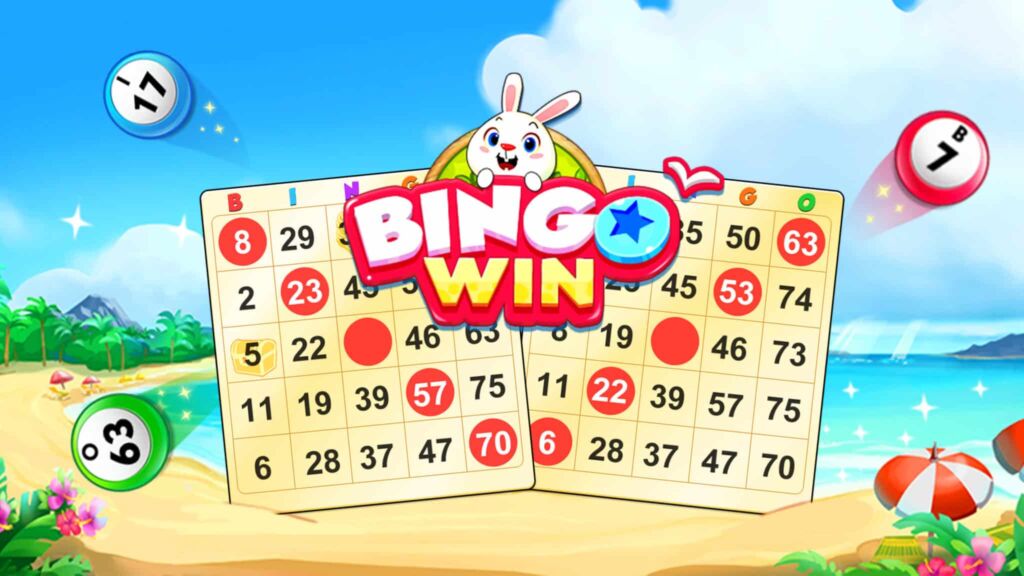Gamification within casinos is reshaping the gambling arena, moving away from traditional forms to blend in aspects often seen in gaming apps. This shift prompts a critical question: Is this move towards novel casino experiences designed purely for entertainment, or is it a clever strategy to entice vulnerable individuals into problematic gambling?
Analyzing the Impact of Gamification in Casinos: An In-Depth Exploration
At its core, gamification serves as the thoughtful application of game-like features and strategies in non-gaming environments. In the realm of casinos, this trend integrates dynamics from video games and mobile applications, including level progression, goal-oriented tasks, engaging leaderboards, digital rewards, and captivating storylines . The ultimate goal is to boost how players interact with casino games, prolong their engagement, and optimize profits for casino operators. Casinos are smartly adopting magnetic strategies from hit digital platforms like Candy Crush Saga, aiming to transform gambling into an exciting, addiction-forming digital journey that notably appeals to younger audiences familiar with interactive entertainment.
Gamification’s introduction marks a strategic makeover beyond mere visual enhancements, entrenched in principles of psychology and designed to subtly influence gamer behavior. By wisely infusing game-like elements, casinos exploit human desires for achievement, social rivalry, and public acknowledgment. This marks a drastic shift from luck-based traditional gambling, ushering in a complex blend of player interaction and perceived advancement that can discreetly nudge players towards increased playtime and expenditure, often without their conscious realization.
Illustrating Gamification Techniques Applied in Casino Setups
The application of gamification strategies in casinos is as varied as it is innovative, continually evolving. Let’s delve into vivid examples exhibiting these sophisticated applications:
- Skill-Based Slot Machines: These attempt to break away from the conventional setups where outcomes are completely random. Instead, they incorporate engaging mini-games that require players to participate actively. Challenges can test different skills, from agility, such as aiming or reflex games, to intellectual puzzles needing pattern recognition or problem-solving. Performing well in these sections might unlock bonus features or enhance payouts, creating an illusion that player skill impacts results. The ‘skill’ factor, like aiming during a bonus game, adds interactivity; however, fundamental odds are still predetermined, maintaining the casino's edge.
- Casino Adventure and Quest-Driven Games: Such experiences merge conventional slot machine mechanics with narratives akin to adventure stories. Players can dive into elaborate in-game worlds, go on epic quests, and advance through levels as they play. A good example is games allowing character upgrades, inventory collections, and story progression, giving a sense of achievement and continuity beyond just winning or losing money.
- Leaderboard-Based Casino Competitions and Tournaments: By introducing a social competitive edge, casinos hold tournaments where players gather points relative to their gaming action. Leaderboards show player rankings, fostering competitiveness and social standing. Prizes range from cash to exclusive items, urging more gameplay and higher stakes as players strive for recognition and rewards.
- Gamified Loyalty and Reward Programs: Present-day reward systems in casinos extend beyond simple cashbacks to gamified experiences. Players advance through tiered systems, earning badges and facing unique challenges that align with their profiles, transforming major engagements into playful pursuits while building brand loyalty.
- Social Casino Games on Digital Platforms: These games, abundant on social media and mobile apps, epitomize pure gamification, focusing safely on social engagement rather than direct gambling. Though they operate on a free model, they gently ease users into real-money settings by mimicking casino dynamics. The ultimate shift comes subtly as users transition to real online gambling once they familiarize themselves with game mechanics, often without realizing the depth of their engagement.
The Psychological Impact: Why Gamification Thrives in Casinos
The remarkable ability of gamification tactics to enthrall players in casinos is no coincidence. It's a deliberate application of key psychology principles that dictate human actions and motivations. These methods strategically leverage human tendencies to prolonged engagement and captivates attention with techniques tailored to keep players interacting longer.
- Understanding the Impact of Unpredictable Rewards in Gamification: In the realm of gamified systems, the use of unpredictable rewards is a strategic approach rooted in behavioral psychology. This technique highlights how the unpredictability of rewards can significantly enhance user engagement. Studies consistently reveal that when rewards are given randomly, they are far more effective in maintaining interest over time than rewards offered on a fixed schedule. This method, known as intermittent reinforcement, creates a cycle of anticipation due to the uncertainty of when the next reward will come. This anticipation stimulates the release of dopamine—a chemical in the brain associated with pleasure and reward-driven behavior—creating a powerful self-sustaining cycle of engagement. Casinos often utilize this by offering bonuses, triggering jackpots, and awarding virtual prizes at random times. This randomness keeps players eagerly engaged, always hopeful of the next reward.
- Understanding the Role of the Sunk Cost Fallacy in Casino Gaming: As players invest more time, emotions, and money into gamified casino games, advancing through levels or collecting assets, the sunk cost fallacy becomes more relevant. This cognitive bias leads individuals to continue investing in an activity due to prior investments, even when it’s no longer beneficial or enjoyable. In context, players in casino adventures or competitive settings often feel compelled to keep playing, fearing the loss of their prior time and resources. This can override logical thinking, causing players to gamble beyond their initial plans because of the psychological pressure from their accumulated investments.
- The Influence of Perceived Control in Casino Games: Casinos often incorporate elements that suggest skill has an impact, creating a strong illusion of control for the player. This technique targets those who believe they can outsmart or enhance their skills to beat the odds. This false sense of control can lead to overconfidence, prompting players to increase their bets. Despite the fundamentally random nature of gambling, players might think their skill affects the outcomes, which can drive them to engage more intensely, sometimes leading to financial risks.
- The Power of Storytelling in Casino Games: Modern casino games sometimes include rich narratives, appealing to our natural love for stories. By embedding gambling mechanics within storylines, casinos enhance the immersive experience, drawing players deeper into the game world. Players become emotionally connected to characters and plots, often blurring the lines between gaming for fun and serious gambling, potentially leading to an underestimation of the financial risks involved as the storytelling captivates them.
- The Role of Social Factors in Gamified Gambling: Gamified casino platforms often build in social elements like leaderboards and competitions, tapping into human desires for peer recognition and social status. Seeing one’s ranking or receiving social rewards can drive players to bet more frequently and in larger amounts to maintain or elevate their position. This social dynamic intertwines with gambling, enhancing player motivation through the pursuit of social validation and competitive success.
The Ethical Dilemma in Gamification: Enhancement or Manipulation?
Gamification can boost the enjoyment of casino games, but it also introduces ethical concerns, primarily regarding the subtle manipulation of players and the need for responsible gaming. The ethical debate centers on whether these engagement tactics simply make gambling more enjoyable or if they exploit psychological vulnerabilities to encourage excessive gambling behavior.
Critics argue these techniques are manipulative by design, engineered to sidestep rational thinking. They highlight how appealing emotionally and psychologically can impair a player's capacity to make informed gambling decisions. The use of variable rewards, control illusions, and narrative immersion shifts gambling perception from high-stakes risks to seemingly harmless games, even though real money is at stake.
Moreover, gamified casinos can disproportionately affect vulnerable groups, like those with gambling issues or tendencies towards addiction. The immersive nature of these games might exacerbate these issues, leading to severe consequences like financial hardship, strained relationships, and mental health struggles.
Proponents of casino gamification argue that these innovative techniques are a natural progression in casino entertainment. They claim that as long as operators follow legal and ethical guidelines, offering such interactive experiences is good practice. Gamification can add skill and narrative to traditional chance-based games, potentially making them more appealing. The industry often highlights responsible gambling measures and tools to mitigate harm, suggesting that responsibility ultimately lies with the individual gambler.
Navigating Gamification: Strategies for Responsible Gambling
To successfully navigate gamified casinos, it's crucial for players to be highly aware of the potential for design manipulation and to consistently employ responsible gambling strategies. Regardless of experience, all players should develop well-informed and carefully thought-out tactics to manage risks and stay in control.
- Gain In-Depth Knowledge of Gamification Mechanisms: It's important to invest time in learning about how gamification works in modern casinos. This involves understanding the psychological tricks, like variable rewards and the illusion of control, that make games more compelling. By grasping these concepts, gamblers can see past the playful façade and become less vulnerable to the hidden manipulations of gamified environments. Knowledge empowers players to make wise choices.
- Set and Follow Strict Boundaries: Before starting any game at a gamified casino, gamblers should define and firmly stick to limits on their time and spending. It's vital to treat gambling as a form of entertainment, like going to see a movie or attending a sports event, rather than as a source of income. Once these limits are reached, whether in terms of time or money spent, it's essential to stop playing, regardless of winnings or losses. This disciplined approach is key to safe gambling.
- Keep a Close Eye on Gambling Habits: Regularly monitoring and evaluating one's gambling patterns is a must for responsible play. Gamblers should note the time and money invested and reflect on how gamification might be influencing their choices. If someone notices longer playing times, overspending, or a strong urge to level up game avatars, these are warning signs that should prompt a thorough review of their approach to gambling.
- Choose Reliable Information Sources: When seeking insights on gambling risks and safe practices, it's important to rely on reputable and unbiased sources. Consulting materials from credible non-profits, regulatory bodies, and support organizations can provide factual advice. These resources offer a balanced view compared to casino operators, who may have a biased standpoint.
- Identify and Act on Problem Gambling Signs: Recognizing signs of gambling addiction, such as chasing losses or gambling to escape personal issues, is crucial. If these behaviors are observed, either personally or in someone close, immediate professional help should be sought. Early action can prevent long-term negative consequences.
- Make Use of Responsible Gambling Features: Gamblers should make full use of responsible gambling tools like deposit limits, session time restrictions, and self-exclusion options offered by reputable casinos. These tools help players maintain control over their gambling habits and support them in sticking to their personal limits.
- Reflect Critically on the 'Fun' Aspect: It's vital to regularly assess whether the enjoyment from gamified gambling is genuine or driven by in-game elements. Players should be wary if their play feels more like a compulsion to achieve virtual milestones, as this can detract from the reality of financial risks. This is a clear signal to re-evaluate the motivation for gambling.
Final Thoughts: Balancing Innovation with Responsibility
The introduction of gamification in casinos represents a blend of digital entertainment with psychology-driven methods. Although these changes can make the casino experience more enjoyable, they bring with them significant ethical questions. A safe approach relies on players being informed and practicing gambling responsibly. By understanding gamification, setting personal limits, and maintaining awareness, players can enjoy gambling safely.
But the responsibility doesn't lie solely with the individual; the gambling industry, regulatory entities, and support organizations must work together to ensure gamification doesn't exploit psychological vulnerabilities. The future of casinos will largely depend on how well this ethical balance is managed.
External Resources:



